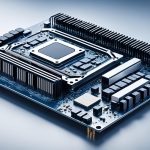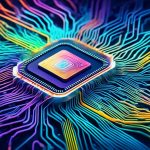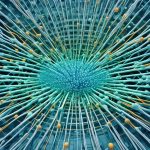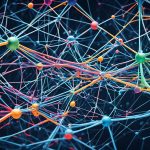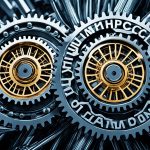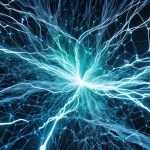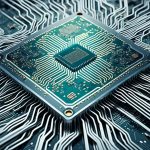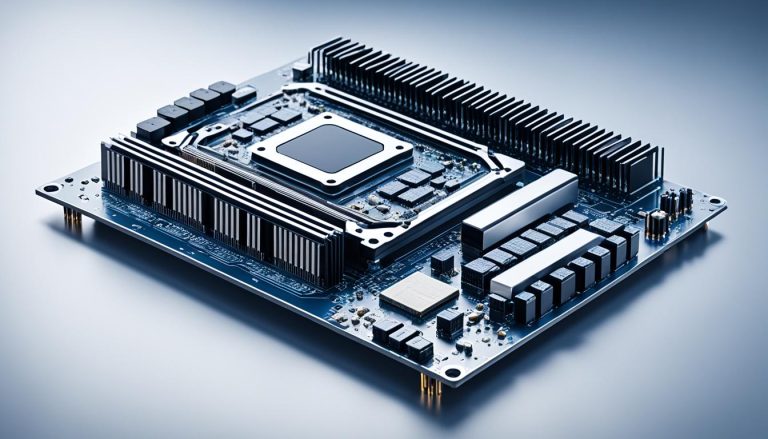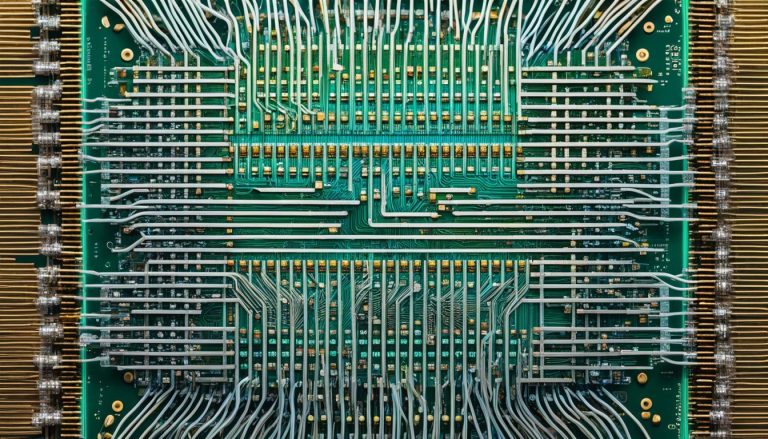Quantum computing holds immense potential for revolutionizing the field of artificial intelligence, particularly in its impact on neural networks. By leveraging the principles of quantum mechanics, quantum computers offer unparalleled speed and efficiency in performing complex computations. This article delves into the profound implications of quantum computing for neural networks, including the transformation of algorithms, optimization processes, and overall computational efficiency.
The Power of Quantum Computing in Machine Learning Algorithms
Quantum computing has emerged as a powerful tool that has the potential to redefine the capabilities of machine learning algorithms. By harnessing the principles of quantum mechanics, quantum computers offer exponential speedup in solving complex problems inherent in many machine learning tasks.
Tasks such as searching large databases, solving optimization problems, and factoring large numbers can greatly benefit from the parallelism and massive computational power offered by quantum computing.
Quantum machine learning algorithms, specifically designed to leverage the unique properties of quantum computers, are being developed to enhance efficiency and speed compared to their classical counterparts.
Quantum machine learning algorithms promise to unlock new frontiers in data analysis and pattern recognition, revolutionizing the field of artificial intelligence – a truly transformative leap forward.
One example of a quantum machine learning algorithm is the Quantum Support Vector Machine (QSVM), which utilizes quantum circuits to perform pattern recognition tasks more efficiently.
Another promising development is the concept of quantum neural networks, where quantum computers are employed to accelerate training processes and enhance the performance of neural networks.
These quantum-inspired neural networks have the potential to solve complex problems by leveraging the unique quantum computational capabilities, leading to breakthroughs in various fields, including image recognition, natural language processing, and drug discovery.
Benefits of Quantum Computing in Machine Learning Algorithms
The integration of quantum computing into machine learning algorithms brings several notable benefits:
- Exponential Speedup: Quantum computers offer exponential speedup, enabling faster processing and improved efficiency in solving complex problems.
- Enhanced Data Analysis: Quantum machine learning algorithms have the potential to extract deeper insights from large datasets, facilitating more accurate predictions and decision-making.
- Increased Model Accuracy: By harnessing the nuances of quantum mechanics, quantum-inspired neural networks can potentially achieve higher model accuracy and better generalization.
- Facilitated Optimization: Quantum computing accelerates optimization processes, enabling faster convergence to optimal model parameters and reducing training times.
The integration of quantum computing with machine learning algorithms holds immense promise for advancing the capabilities of artificial intelligence and driving innovation across various industries.
As the field continues to progress, researchers and developers are actively exploring the potential applications and advancements that quantum computing can bring to machine learning, laying the foundation for a new era of intelligent systems.
Revolutionizing Optimization Processes with Quantum Computing
Quantum computing has the potential to revolutionize optimization processes in machine learning. By leveraging the power of quantum algorithms, researchers are exploring new avenues for achieving global optimization and accelerating the training process of machine learning models.
The Quantum Approximate Optimization Algorithm (QAOA)
One notable quantum algorithm in this domain is the Quantum Approximate Optimization Algorithm (QAOA). QAOA is specifically designed to efficiently find global optima, making it a valuable tool for solving optimization problems encountered in machine learning. For example, QAOA can be applied to hyperparameter tuning, a crucial aspect of model optimization.
QAOA allows for the exploration of multiple solutions simultaneously, leading to reduced training times and providing an advantage over classical optimization techniques. By leveraging the principles of quantum mechanics, QAOA can effectively converge to optimal model parameters, enabling faster and more efficient training.
Quantum-Enhanced Optimization Techniques
Quantum computing offers a range of optimization techniques that can significantly enhance the training process of machine learning models. These quantum-enhanced techniques exploit the parallelism and superposition properties of quantum systems, enabling the exploration of multiple solutions simultaneously.
By simultaneously searching different regions of the optimization space, quantum-enhanced optimization processes can lead to improved convergence and faster identification of optimal model parameters. This capability holds great potential for accelerating the training process and achieving better performance in machine learning tasks.
Advantages and Promising Developments
The integration of quantum computing into optimization processes poses several advantages for machine learning. Some of these advantages include:
- Efficient global optimization: Quantum algorithms like QAOA can efficiently find global optima, overcoming the limitations of classical optimization techniques.
- Enhanced exploration capabilities: Quantum computing allows for simultaneous exploration of multiple solutions, leading to faster convergence and improved identification of optimal parameters.
- Acceleration of training process: Quantum-enhanced techniques can reduce training times, leading to more efficient model development and deployment.
As quantum computing continues to advance and researchers explore its potential, there is a growing hope for further developments in optimization processes within the machine learning field.
Image: Visual representation of global optimization, symbolizing the potential of quantum computing in optimizing machine learning models.
Challenges and Considerations in Quantum Computing for Neural Networks
While quantum computing holds great promise for neural networks, there are several challenges and considerations that need to be addressed. Quantum computing, with its ability to perform complex computations at unprecedented speeds, has the potential to revolutionize machine learning algorithms and overall computational efficiency. However, the unique properties of quantum systems introduce new obstacles that must be overcome for successful integration into neural networks.
Quantum Decoherence: Preserving Fragile Quantum States
One of the primary challenges in implementing quantum algorithms for machine learning is quantum decoherence. Quantum decoherence occurs when the delicate quantum states required for computations interact with the surrounding environment, leading to the loss of information and the breakdown of quantum coherence.
Quantum decoherence presents a significant hurdle in the development of robust and reliable quantum machine learning algorithms. As neural networks rely on maintaining the integrity of quantum states to perform computations, mitigating the effects of decoherence is crucial. Researchers are exploring various techniques, such as error correction codes and quantum error correction algorithms, to preserve the fragile quantum states and reduce the impact of decoherence.
Quantum Hardware Development: Scalability and Stability
Another key challenge in leveraging quantum computing for neural networks is the development of scalable and error-tolerant quantum hardware. Quantum systems are highly sensitive to external disturbances, making it challenging to maintain the stability of qubits, the fundamental units of information in quantum computing.
To unlock the full potential of quantum computing for neural networks, advancements in quantum hardware development are essential. Researchers are working towards achieving more stable qubits and developing scalable architectures that can accommodate the complexity of large-scale machine learning tasks. Quantum error correction techniques also play a crucial role in improving the fault-tolerance of quantum systems, enabling more reliable computations.
Overcoming Challenges for Quantum Computing in Neural Networks
“The challenges and considerations in adopting quantum computing for neural networks are significant. However, the potential rewards are equally immense. Overcoming the obstacles of quantum decoherence and quantum hardware development will require interdisciplinary collaboration and continued innovation. As researchers make progress in developing more robust quantum algorithms and hardware, the transformative power of quantum computing in machine learning and neural networks will become increasingly evident.”
Addressing the challenges and considerations in quantum computing for neural networks is essential for realizing its full potential. While progress has been made, there is still much work to be done in improving the stability of quantum systems and preserving the delicate quantum states necessary for efficient computations. By tackling these challenges head-on, the integration of quantum computing and neural networks can pave the way for groundbreaking advancements in artificial intelligence and data analysis.

Conclusion
In conclusion, the integration of quantum computing and neural networks represents a paradigm shift in the field of artificial intelligence. Quantum computing has the potential to revolutionize machine learning algorithms, optimization processes, and overall computational efficiency.
While still in its early stages, quantum computing holds great promise for the future of artificial intelligence. As researchers overcome challenges in quantum hardware development and address considerations like quantum decoherence, the synergy between quantum computing and neural networks opens up new frontiers in data analysis, pattern recognition, and problem-solving capabilities.
Looking ahead, the transformative power of quantum computing is poised to shape the future of artificial intelligence. With the ability to tackle complex problems at unparalleled speeds, quantum computing has the potential to unlock unprecedented possibilities for the advancement of neural networks and propel AI research into new dimensions.
FAQ
What is the potential impact of quantum computing on neural networks?
Quantum computing has the potential to revolutionize the field of artificial intelligence by enhancing the capabilities of neural networks. By harnessing the principles of quantum mechanics, quantum computers can perform computations at unparalleled speeds and efficiency, leading to transformations in algorithms, optimization processes, and overall computational efficiency.
How can quantum computing enhance machine learning algorithms?
Quantum computers offer exponential speedup in solving complex problems inherent in many machine learning algorithms. Tasks like searching large databases, solving optimization problems, and factoring large numbers can significantly benefit from the parallelism offered by quantum computing. Quantum machine learning algorithms, specifically designed to leverage the power of quantum computers, are being developed, promising increased efficiency and speed compared to classical counterparts. Examples include quantum support vector machines and quantum neural networks.
In what ways can quantum computing revolutionize optimization processes in machine learning?
Quantum algorithms, such as the Quantum Approximate Optimization Algorithm (QAOA), can efficiently find global optima, solving problems like hyperparameter tuning in model optimization. Furthermore, quantum computing’s ability to explore multiple solutions simultaneously can lead to reduced training times for machine learning models. Quantum-enhanced optimization techniques can aid in converging to optimal model parameters more quickly, accelerating the training process.
What challenges and considerations are there in implementing quantum computing for neural networks?
Quantum decoherence, the disruption of delicate quantum states by the environment, poses a significant hurdle in implementing quantum algorithms for machine learning. Additionally, the development of scalable and error-tolerant quantum hardware is an ongoing challenge. Advancements in quantum error correction and the stability of qubits are essential for realizing the full potential of quantum computing in neural networks.
What is the future potential of quantum computing and neural networks?
The integration of quantum computing and neural networks represents a paradigm shift in the field of artificial intelligence. As researchers overcome challenges in quantum hardware development and address considerations like quantum decoherence, the synergy between quantum computing and neural networks holds the promise of unlocking new frontiers in data analysis, pattern recognition, and problem-solving capabilities. The future of artificial intelligence may be shaped by the transformative power of quantum computing.


